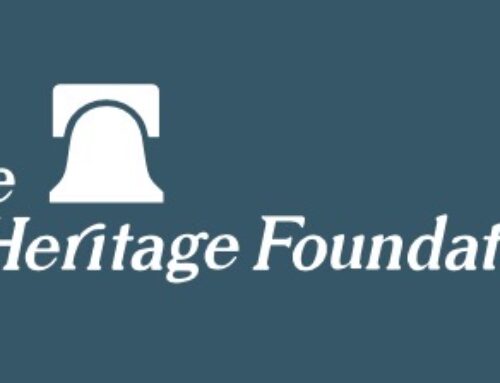By Robert Knight
The Washington Times
(August 20, 2017)
In 1993, when President Clinton signed the National Voter Registration Act (NVRA), its boosters claimed that it would solve, once and for all, a plethora of problems plaguing the nation’s voter registration rolls.
However, like many ballyhooed efforts, the Motor Voter Law, as it is best known, resulted in an even crazier system, with such absurdities as millions of people registered in more than one state, cemeteries full of active “voters,” and non-citizens “inadvertently” placed on voter rolls.
Although Motor Voter has a provision requiring jurisdictions to keep voter rolls up to date and accurate, many election officials openly flout it, which is why the has been suing counties from Texas to Florida over their dirty voter rolls.
Now comes the Left’s latest “solution,” which they call automatic voter registration (AVR). The idea is to enroll everyone who has contact with the DMV or any public agency, whether they want to be in the system or not. This is mandatory registration, a precursor to mandatory voting, one of Barack Obama’s pet schemes.
In a recent column in The Hill, two academics – Kenneth Cosgrove of Suffolk University and Nathan R. Schrader of Milsaps College – make the case that President Trump’s Election Integrity Commission should embrace automatic voter registration. They say that, among other things, AVR would improve the accuracy of voter rolls. Wrong. AVR does nothing to allow the interstate sharing of registration and voting data necessary to keep ineligible persons off the voter rolls and stop duplicate voting.
Having the feds collect all the data “would lead to greater security but would not impinge on personal freedoms or create a national identification card, a legitimate concern of many civil libertarians,” the good professors assure us.
Recall that when Social Security was enacted in the 1930s, its backers promised the American people that their numbers would never, ever be used as a form of identification. Have you tried functioning without using your Social Security number as part of your identification?
You don’t have to be paranoid to believe that the government has a thing for collecting every bit of data on us that it can use for whatever purpose it deems necessary.
In many cases, AVR does not require proof of eligibility to vote, no affirmation of eligibility to vote by the person, and does not allow voters to decline to register or pick a political party until days or weeks after the transaction with government. Often, there is no verification of citizenship or other qualifications prior to registration. Well, so what? The more the merrier!
Eight states, plus the District of Columbia, have enacted such laws. They are Alaska, California, Colorado, Connecticut, Oregon, Rhode Island, Vermont and West Virginia.
In Oregon and Colorado, they compound the problem by mailing ballots to everyone on the voter rolls, whether they are active voters or not. Scenarios for abuse abound. Think about a multi-resident house near a college where students come and go each semester while ballots pile up in their mailbox. How hard would it be to collect them and vote in someone else’s name?
There are millions of outdated and inaccurate voter registrations across the country, and automatic voter registration will only worsen the problem. Under AVR, people could be registered in multiple locations without their knowledge simply because they interacted with a government agency.
Proponents tell us not to worry, that everyone will be tracked via their Social Security numbers and that state election offices will be told if someone moves out of state. The whole thing will be conducted with the efficiency of, oh, the Veterans Administration.
Here’s something else to think about it: A centralized federal database will, in effect, supplant the 50 state databases now operating under the Constitution’s Article I, which assigns voter qualifications to the states.
Anyone suspicious of Washington amassing even more power to itself has reason to worry. It’s one thing for U.S. agencies to cooperate with requests for data in order to keep county and state voter rolls honest. It’s recommended under the NVRA. It’s another for the feds to say, don’t bother; we’ll do it all for you.
Mandatory voter registration also tramples on individual freedom. Not everyone wants to show up on a registration list or even to vote. In a free country, that should be a citizen’s option. Plus, voter rolls are public and easily accessible, so there are privacy concerns.
But here’s the bottom line: When progressives propose something that supposedly will enhance “democracy,” it inevitably winds up expanding government.
And more government power means less personal freedom.
Robert Knight is a senior fellow for the .






